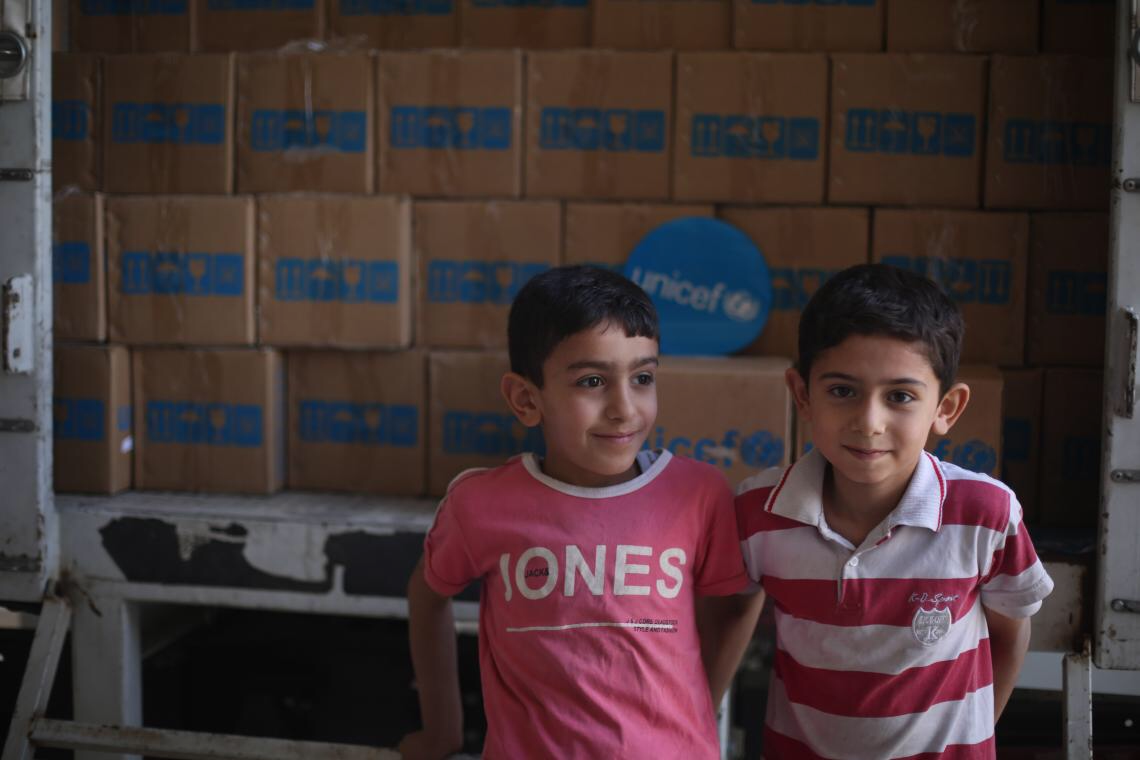UNICEF SYRIA
$0
Raised
0
Payments
$400,000
Goal
The Situation of Children in Syria
Syria’s nearly seven-year conflict continued unabated, with all parties to the conflict intensifying military operations in Idleb, Hama, Eastern Ghouta and in the Northeast of the country. This resulted in thousands of civilian deaths, the destruction of infrastructure as well as continued mass displacement.


Life-saving interventions
By the end of 2017, an estimated 417,000 civilians, half of whom were children, were living under siege and some 2.5 million civilians - 70 per cent of whom are women and children - in hard to reach areas. UNICEF focused on responding to the immediate needs of the most vulnerable populations with life-saving interventions, especially in health and nutrition, water and sanitation, child protection and education.
In addition to developing and implementing more sustainable resilience-building interventions in education, youth and adolescent programming and social protection through a diversified array of partners.


In terms of emergency interventions UNICEF Syria participated in 49 Inter-agency convoys delivering humanitarian assistance to nearly 500,000 including an estimated 215,000 children in hard-to-reach and besieged areas mainly in Northern Hama and Eastern Ghouta. Through 14 inter-agency airdrops, UNICEF delivered life-saving assistance to an estimated 30,000 people in need in Deir-ez-Zor.


Water and sanitation response
Of particular importance were water-related interventions delivering access to drinkable water to approximately 3.2 million people through continued water trucking and the setting-up and rehabilitating of WASH facilities in areas of recent massive displacement. Meanwhile, sustained access to drinking water and sanitation was ensured to almost 5.4 million people through the rehabilitation of the water and sewage networks, water pumping stations, and the equipping and rehabilitating of wells in 11 out of 14 governorates.


Social protection scheme
Furthermore, cash-based programmes were expanded to include a social protection scheme targeting children with disabilities and their families (coupling cash transfers with case management) and seed funding programmes targeting young people.
UNICEF Syria also supported 2.1 million children in formal and informal education through various programmes including the Back to Learning Campaign, teachers’ professional development programmes, provision of teaching learning materials and provision of text books in schools. UNICEF also supported the inventory and renewal of cold-chain system, to ensure the safety of vaccines and effective immunization services in the country.